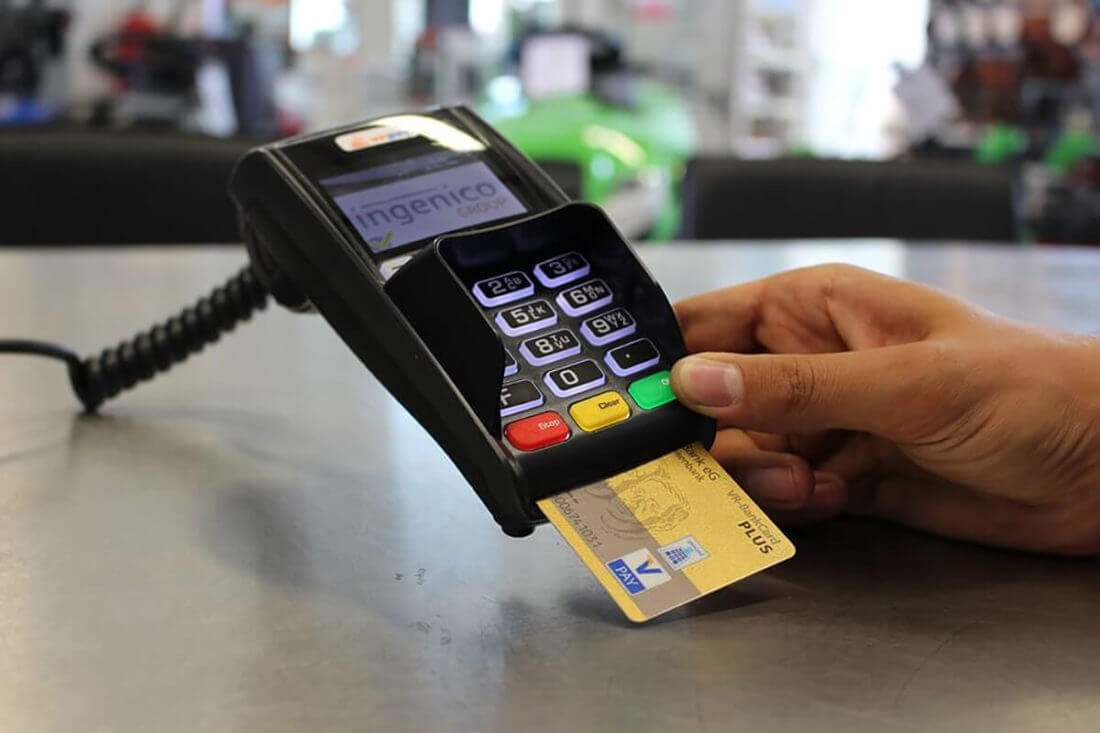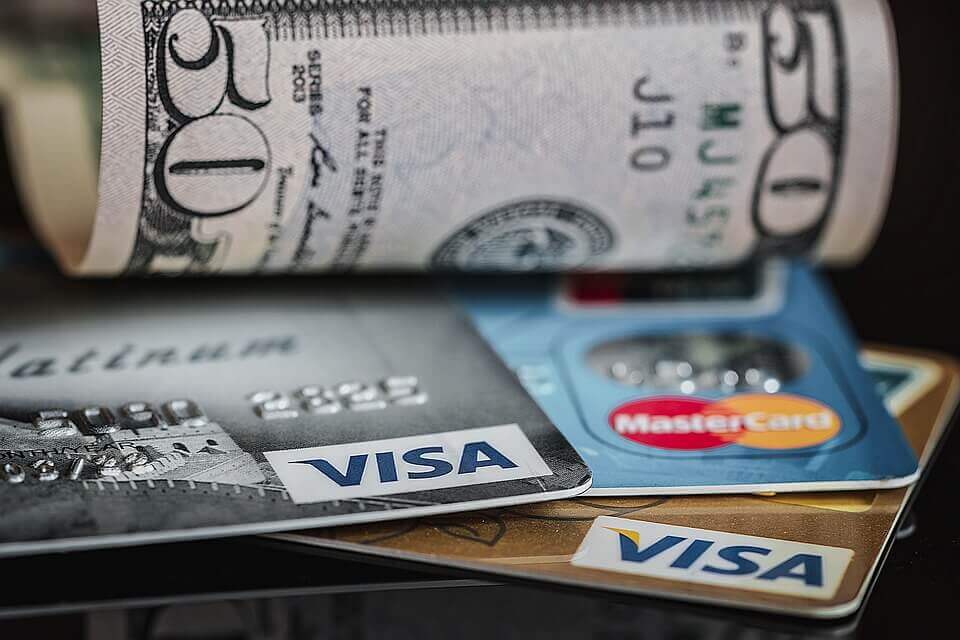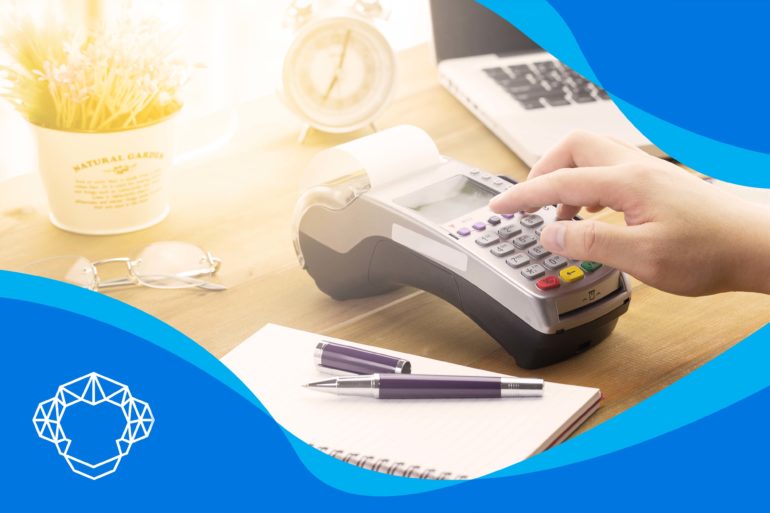No matter if you have been accepting plastics for a long time or you are starting now, there is a real risk of overpaying credit card processing. However, how can you really tell if you are paying too much? Have you reviewed your billing statement? Do you know what kind of charges to pay attention to?
Before you try to figure out if you are giving away too much cash, get to know the basics of processing, and why the credit cards are so important for small businesses. When you understand the terms and what they mean, it will be easy to pinpoint what fees you shouldn’t be paying at all. You might have too much on your plate, trying to keep your finances in balance while aspiring to build up your company. That’s why, to help you, we made a list of the clever ways you can use to tell if you are paying too much money.
Get Familiar With Processing Basics
If you want to avoid losing funds by paying unnecessary charges, you need to get familiar with processing basics. When you figure out what all the rates and fees mean, it will be easy to identify if you are giving too much cash on processing. First things first, processing costs have three components:
- The interchange that is collected by the bank.
- Assessments and dues that are collected by the card issuer
- The processor’s markup, which is a negotiable charge.
You can negotiate processing expenses when discussing the markup over interchange and assessments, but since several factors contribute to the markup, some things are not negotiable. That’s why markups can vary depending on the company you hire. Furthermore, the pricing model dictates whether the processor charges the actual cost or increases the charges:
- Interchange plus or pass-through pricing model might look too complicated, but it offers the lowest cost solutions. With it, you will be charged for the actual cost for assessment and interchange, and then the processor will apply small markup separately. This way, you will see how much you are paying in non-negotiable costs and how much you are giving to the processor as a profit. Looking into the processor’s profit is the best way to save cash because you will be able to see how much they are charging you.
- Flat Rate is exactly that – you pay a flat rate no matter what. This includes interchange and assessment charges. This can be a low-cost option if the interchange and assessments are almost the same worth as flat rate charges. If they are lower, it can be an expensive choice. However, because of combining expenses, it is almost impossible to figure out if you are paying more than you need to. The flat rate can be the most suitable option for newly established or small enterprises with low monthly processing volume.
- Tiered or bundled pricing is in more cases than not the most expensive. With it, the processor decides which transaction will qualify for low rates. It can also decide which of the transactions are “non-qualified,” and then you might be charged much higher rates. What exactly are non-qualified rates? Basically, it is the highest rate you can be charged with, which includes purchases made by international, corporate, or high-reward plastic.
Besides understanding what different charges mean, it is essential to brush up on general terminology. You can either do your own research or call a professional merchant service provider for more information.
Credit Card Processing Can Help You Make Money
Even though it might seem like more trouble than it is worth, processing cashless payments can help your company strive. With the right solution, you will be able to process cards not only in person but also online. There are approximately 1.06 billion cards in use in the US, so why not use that to your advantage while selling products?
Give customers different payment options and enhance your enterprise. After all, 40% of Americans are likely to use plastic when purchasing products. That fact shouldn’t be taken for granted. Plastics are also efficient because you don’t have to go through unnecessary accounting processes. You will have everything displayed on your merchant account.

Understand Various Processing Fees
There are more than a few processing fees that might come up on your statement every month, and if you don’t want to overpay, get familiar with them. Remember, processors present their charges in different ways, and that’s why it is important to review the statement every month. When you are aware of charges that you could be paying or those that you already are, it will be easy to tell if you are overpaying.
Know What Kind of Payment Processing Fees Exist
Understanding what kinds of processing fees exist will allow you to tell which one might impact your small business the most. In general terms, payment processing fees can be categorized into:
- Flat fees are monthly charged by a merchant service company, and they can replace some transactional fees or be in addition to them.
- Transaction fees are charged for each transaction by the credit card issuer or bank. Generally, they are based on a percentage, and they are either tier-based or flat.
- Incidental fees can occur as one-off incidents like chargeback, insufficient resources, and PCI non-compliance charges.
Check Out Refund Fees
Get informed about the way the processor handles a refund transaction. Some return the refunded interchange to the business owner and only charge a small fee when routing the refund. However, some keep the interchange and additionally charge a transaction fee. And some go even further and charge processing and transaction fees on the refund. These three ways of refunding money can have a big impact on your funds, especially if you have eCommerce because such transactions typically initiate more refunds.

Compare Processors Before Choosing the Best One
Are you wondering how to find the best credit card processing for a small business? While doing your research, stay away from the top ten lists, because they are not doing you any favors. Reviews are not helpful because the processors can set rates and terms, and you still might not find any negative posts. That being said, you can still go over the reviews, just take them with a grain of salt.
Remember, transparency of costs should be one of the key things to look into. A company that has nothing to hide will be extremely transparent about everything, from fees to terms and conditions. Also, keep in mind that the cheapest options, even though tempting, are not usually the most reliable because they might come with a long list of hidden costs.
Don’t Rush Into Leasing Equipment
As a merchant, you should stay away from leasing any kind of equipment because those deals can turn out very expensive. Many entrepreneurs invest in expensive point-of-sale systems or lengthy equipment leases only to realize that they are being charged too much. However, when an owner realizes that they are being ripped off, they are already in a lengthy contract. Sometimes it can happen that new hardware is not compatible with business software.
Do a little bit of digging, and you will find the equipment that will fit your company’s existing tech. Consider using a mobile reader, which is an affordable option. There are also many other options that can be an excellent choice for you.

Use Online Calculators to Figure Out the Effective Rate or Do It on Your Own
The effective rate is paid for processing after taking into consideration non-negotiable charges and the provider’s markup. The effective rate is what you get when you add up all processing costs. There are plenty of online calculators that can help you figure out the effective rate, however, if you want to do it on your own, try the simple equation: All fees/all amount processed X 100 = effective rate.
If you are wondering what is a good effective rate for small businesses, experts state that rates of 2.5-3.5% are to be expected and that you should not settle for more. Nevertheless, the number can change because it depends on different factors:
- The chosen processor – finding the best processing company can play a big role in your overall expenses.
- The risk factor of your business – if your company belongs to a high-risk industry, your costs will be higher.
- Types of transactions – some cost more than others, for example, online purchases are considered a riskier hence you will be charged more for them.

Read Your Merchant Statement Carefully
There are many companies that can provide you with processing services, and some of them might not have your best interest at heart. They’ll include some really pointless charges in the statement. Remember, those additional fees don’t really offer any extra benefits or services. They serve simply to take more money from businesses and give it to the service provider. Some of these extra charges can be written down as: discounts, application charges, service packages, or batch fees.
When you are reviewing your next merchant service statement, look for these unnecessary charges, if you find them, that can be a good indication that you could pay less by hiring another company.
Short Manual on How to Read Merchant Statement and Avoid Overpaying Credit Card Processing
When you learn how to read the merchant statement, you will figure out if you are being charged more than necessary. Know that every statement should have basic elements such as:
- Processor’s name
- Logo
- Merchant Identification and name of your enterprise
- Location
- Details about deposit
- Monthly volume and fees.
If you don’t know what to look for in a statement, you can fail to understand it completely. Every entrepreneur needs to know how everything works in order to successfully interpret the report. However, the layout and structure differ for each processing company, so you can never be absolutely sure you know everything. That’s why it is important to go over a report step by step, looking for inconsistencies and overcharged services.
When you are going over the file, pay attention to transparency. Some pricing may be set in a way that hides true rates and fees. The statement should have a full-disclosure:
- Of PCI compliance fees
- Of training and customization charges
- Of customer service charges
- Of systematic integration costs.
Before hiring a professional merchant processor, ask as many questions as possible, and make sure you understand what you are getting yourself into and what exactly you are paying for.

Useful Advice on How to Stop Overpaying Credit Card Processing
Basically, the whole point is that the amount of money you pay for processing will depend on many factors, but also from the professionalism and honesty of your chosen provider. You don’t want to overpay and lose all of your finances, because then you have to consider loans to keep your company afloat. That’s why, to help you lower your expenses, we present a couple of valuable advices that can help you stop overpaying for processing:
- Using the best practices when accepting credit cards – this can include accepting chips in person as hand-keyed, swiped, or other transactions that can carry higher processing charges. Also, with the best practices, you can avoid chargebacks and additional incidental fees. They not only hurt your finances but can lead to account suspensions or even terminations.
- Finally, when you understand your pricing model, and you know how to determine a fair threshold for accepting plastic, you can avoid taking credit cards for small purchases. For example, selling a cup of coffee for $2 or a loaf of bread for $2.50 will reduce a profit to nearly nothing if you receive a payment with plastic.







